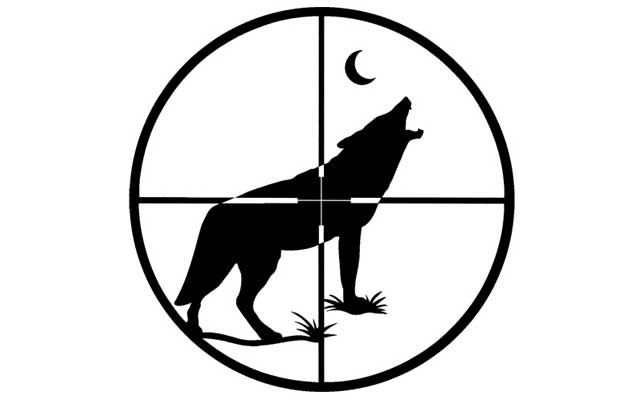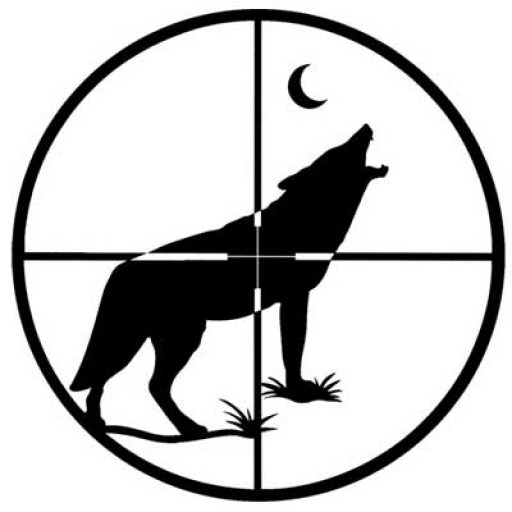The Benefits of Predator Hunting at Night
Predator hunting at night is an increasingly popular practice for hunters seeking to take advantage of the unique benefits that night-time offers. Whether you’re pursuing coyotes, bobcats, foxes, or other nocturnal predators, hunting at night can provide a variety of advantages that make it an exciting and effective way to hunt. Below, we’ll explore the key benefits of predator hunting at night.
1. Predator Behavior and Activity
Many predators, such as coyotes, foxes, and bobcats, are naturally more active during the night. They are crepuscular or nocturnal animals, meaning they hunt and forage more during the evening and early morning hours. At night, predators are often less cautious and more focused on hunting for food, which increases their chances of being drawn to predator calls or bait. This behavior makes nocturnal hunting ideal for targeting these species when they are out and about, hunting or searching for food.
- Increased movement: Nighttime hunters often find that predators are more active, making them more likely to respond to calls.
- Less human interference: Fewer people are out and about at night, so the predators’ typical fears of humans are reduced.
2. Improved Concealment and Stealth
Hunting at night provides superior concealment for hunters. With darkness as your ally, it’s much easier to blend in and remain unnoticed by both the prey and other humans. Unlike daytime hunting, where animals can spot movement from a distance, night hunting allows you to move quietly without being seen. This stealth is particularly beneficial when using predator calls, as you can place your setup at the right location without alarming your target.
- Reduced visibility: It’s harder for predators to spot hunters at night, increasing your chances of successfully setting up undetected.
- Better camouflage: You can use the cover of darkness to your advantage, getting closer to predators without alerting them.
3. Less Crowded and More Peaceful
Nighttime hunting often means fewer hunters in the field, leading to a more peaceful and solitary experience. For those who prefer to hunt in seclusion or in remote areas, night hunting provides the opportunity to escape the crowds typically seen during the day. This solitude not only makes the hunting experience more enjoyable but also lessens the chances of encountering other people or spooking game.
- Fewer hunters: There is less competition and fewer disturbances from other hunters during the night.
- Peaceful atmosphere: The calmness of the night can make the hunt more enjoyable and less stressful.
4. Use of Advanced Technology
Night hunting has become much more accessible with the advancement of night vision and thermal imaging technology. These technologies allow hunters to detect and identify predators even in complete darkness, giving them a huge advantage over traditional daytime hunting methods. Thermal scopes, night vision optics, and high-powered lights make it possible to spot predators from long distances, track their movements, and engage them safely and effectively.
- Thermal optics: Thermal scopes can pick up the heat signatures of predators, even if they are well camouflaged.
- Night vision: With night vision scopes or monoculars, hunters can clearly see their surroundings in low-light conditions.
- High-powered lights: Specialized hunting lights can illuminate areas for tracking and shooting, giving hunters visibility without spooking the game.
5. Fewer Environmental Distractions
At night, ambient noise and visual distractions are significantly reduced compared to daytime hunting. During the day, the natural sounds of the environment—wind, birds, and insects—can interfere with your ability to hear predators or accurately gauge their movement. Night hunting offers a quieter, more controlled environment, allowing you to focus on the sounds of your calls and the potential responses from predators. Additionally, without the sun glaring in your eyes, your visual acuity is less affected by brightness, making it easier to focus on potential targets.
- Reduced ambient noise: The quietness of the night helps you hear subtle noises or movements of predators.
- Less visual distraction: No bright sunlight to contend with, making it easier to focus on your target.
6. Increased Opportunity for Multiple Shots
When predators are active and responding to calls, night hunting allows for a better chance of multiple encounters in a single outing. Since predators tend to be less wary and more willing to approach calls at night, you might get several opportunities to engage within a short time period. Additionally, because the predators are moving during their most active hours, there’s a higher likelihood of encountering multiple animals in one trip. This is especially advantageous in areas where predators like coyotes often travel in packs.
- Multiple opportunities: The likelihood of encountering more than one predator in a night is higher, especially if you’re hunting in an area with high predator density.
- More targets: At night, predators are often easier to bring in one after another, allowing for multiple successful shots during a single session.
7. Ability to Target Problem Predators
Night hunting allows you to focus on problem predators that are known to cause issues for livestock, farmers, or landowners. Coyotes and other predators can be particularly active after dark, and hunting them at night provides an effective method of controlling populations. Since predators often hunt at night, they may be more likely to take advantage of vulnerable livestock or smaller prey. By hunting at night, you’re more likely to eliminate these threats before they can cause damage.
- Targeting nuisance predators: Hunting predators that are problematic for farmers or wildlife managers can be more effective during the night.
- Reduced conflict with other activities: Night hunting allows you to take care of predator control without disrupting daytime activities on farms or ranches.
8. Cooler Temperatures for Comfort
In many areas, nighttime temperatures are significantly cooler than daytime highs, making the hunting experience more comfortable, especially during warmer months. Hunting in the cool of the night can be a welcome relief, particularly during the summer when daytime temperatures can soar. This means you’re less likely to overheat or become fatigued as quickly, allowing you to remain more focused and alert throughout the hunt.
- Cooler conditions: Comfortable temperatures help you stay focused and energized for longer periods of time.
- Better stamina: Less heat means you’re able to endure longer hunts without feeling drained.
9. Increased Success in Open Terrain
When hunting in wide-open fields or desert-like landscapes, predators can often see hunters coming from a great distance. At night, however, you have the advantage of the cover of darkness, allowing you to close the distance and get closer to your target. The lack of visual cues from predators makes it easier to approach without being spotted, giving you a significant edge, particularly when using electronic calls or bait.
- Improved stalking opportunities: Darkness allows for stealthier approaches and better concealment when moving across open fields.
- Easier to use electronic calls: At night, predators are more likely to respond to calls without the fear of being spotted.
Conclusion
Predator hunting at night offers a unique set of advantages that can significantly increase your chances of success. From improved predator activity, stealthier approaches, and less crowded hunting conditions to the use of cutting-edge night vision and thermal imaging, hunting at night allows for a more strategic and rewarding experience. Additionally, the cooler temperatures, fewer distractions, and ability to target problem predators make night hunting an ideal choice for those looking to enhance their effectiveness in the field.
Whether you’re targeting coyotes, bobcats, foxes, or other nocturnal species, hunting at night is an exciting and rewarding method that can provide greater opportunities, better concealment, and increased success for both novice and experienced hunters alike.

